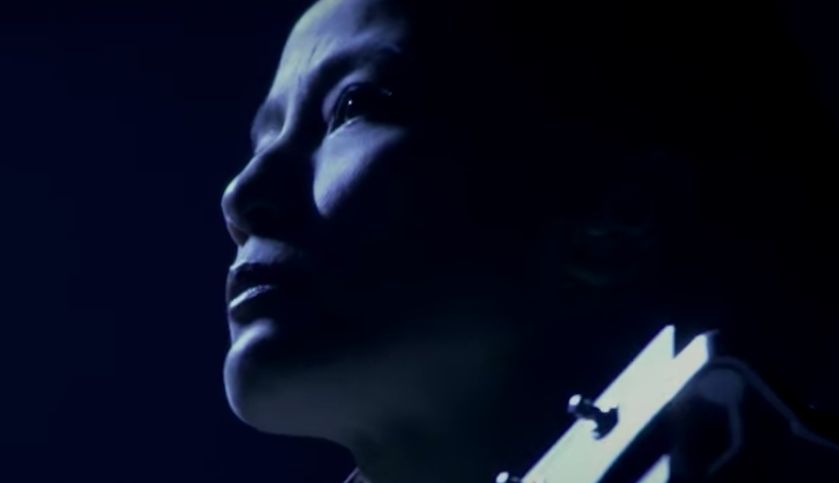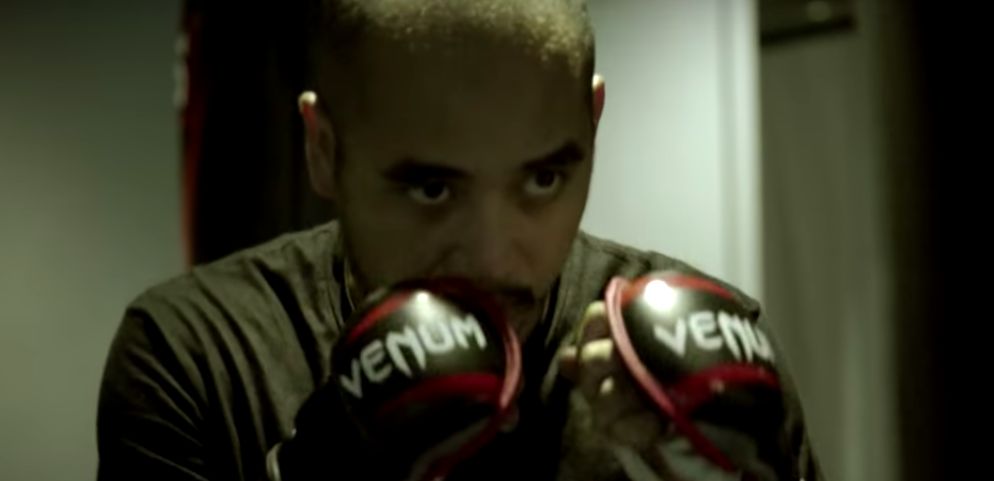“Last Exit to Kai Tak,” which is being screened during Free Expression Week next month, is British filmmaker Matthew Torne’s third documentary film on Hong Kong’s increasingly complex pro-democracy movement.
Torne’s new film expands on the narrative of his previous films, “Lessons in Dissent” (2014) and “Joshua, Teenager vs. Superpower” (2017), which won an audience award at the Sundance Film Festival, in a way that mirrors both the changing circumstances and social and political complexities of Hong Kong, as well as the director’s own maturity.

“Last Exit to Kai Tak” interweaves the stories of Joshua Wong, Denise Ho, Wong Yeung Tat, Ed Lau, and Derek Lam as they each face up to the personal and professional challenges of being pro-democracy activists in Hong Kong post-2014.
We watch each fight for what they believe in very different ways — and quite literally fight in the case of Wong Yeung Tat, as he gears up for a boxing match. This alone would have made the film worth watching.
However, what Torne adds is the experience of having spent much of the past six years close enough to many of the characters to understand what drives each as a true insider. Torne is thus uniquely placed as both a filmmaker and as a witness to painstakingly compile over two years of footage into a narrative that is, above all, honest. The result is a film that is often slow and at times a touch laborious, and which lacks the energy that made his previous two films so watchable.

Tying the separate and very different characters and stories together is the question: what does it mean today to be a Hongkonger? It is a simple and effective question that gets to the core of the poisonous politics of the city since its transfer of sovereignty to China in 1997.
For underlying the various calls for democracy is a desire to be recognised, both for who they are and for the very real ways each relates to the city that they call home. It is both a fundamental question in principle as it is deeply personal.
When watching the film, the irony that many people in Hong Kong feel but struggle to see clearly becomes apparent: the very differences that define them and their sense of belonging to the city as a threat to the governing establishment — for without democracy that is all the government of Hong Kong is — and, on a national level, is deemed both traitorous and separatist, is precisely that which makes Hong Kong different from the Mainland.

Far from not caring and blindly embracing a non-Chinese identity, we watch five very different people struggle to reconcile being Cantonese and Chinese, and in some cases also internationalist: three tenets of an identity that is neither new nor should be controversial to anyone who knows the city.
Inherent in the question of identity is not only the values and way of life of Hong Kong that are supposedly guaranteed by both Britain and China through the city’s mini-constitution, the Basic Law; but also an acknowledgement, self-evident to anyone who has visited the city, that the people of Hong Kong are indeed different from their comrades on the Mainland, and that the city’s success not as an economy, but as a social entity, is built upon institutions derived from a very different set of values.
It is sadly a social and cultural fact, obvious to all, that runs counter to the politics of Chinese One Nation nationalism and the narrative of a self-interested establishment.

The story Torne documents in his Hong Kong trilogy is not that of a movement of people fighting for democracy as much as a people fighting to preserve their own distinct identity and way of life. It is not driven by hope but hopelessness. It can make for harrowing viewing.
Of the five characters this film follows, Ed Lau, and Derek Lam, arguably the two with the least profile, I found the most compelling. Lau is a returnee and grassroots businessman running for district council election. We do not see what he does, but we see where he lives and works. He shouts and swears (as only one can in Cantonese), and sweats constantly. It is a side to this city, shorn of its glamour, not all Hong Kong residents will find familiar, but which almost every Hongkonger will know.
Particularly touching, and yet again familiar to many, are the scenes of Lau with his dying mother, who warns him not to get involved in politics. Having raised the family in Britain, her message is not born out of a Western contempt for liberal politics, but from a very Chinese fear of authoritarianism. She fears for him, yet as we discover, is also immensely proud of his resolution. Torne deserves much credit for telling this story, and as a filmmaker for capturing it with such skill.

If we find strength in Lau’s character and story, in Lam’s we find the isolation and personal disintegration of a young university student activist whose principled ideals leave him denied a livelihood. We hear him plead for his old job back at a fast food chain, only to be told by his friend that he cannot have a job. “You know why,” he is told. This is for a job on minimum wage. From the highs of the protest movements, we see retribution meted out by a city in servitude. His fall, both real and mental, is slow but precipitous. We feel for him.
As the only Western colony to be denied self-rule, twice in the 1960s and again upon its handover of sovereignty to China in 1997, Hong Kong is unique. It is also tragic, as in each case the Hong Kong people were not consulted, on the orders of Beijing, that claimed to represent all “Chinese” as a matter of supposed historic “fact.”
“Britain may not have done much for the people of Hong Kong,” an eminent local political scientist once told me, “but at least they did not work against us.” Torne’s film does not make this point directly. However, his film is layered thick with the political nuances that have come to define the current politics of protest and oppression. His images capture this underlying betrayal.

“Last Exit to Kai Tak” is an ambitious film. It will also be his last about Hong Kong. This is a great shame. Torne is a fine filmmaker, and his films stand out in their technical skill as well as storytelling. But most of all his films are honest. He does not advocate nor does he embellish. Each of his characters are allowed to tell their own stories, in their own words. As a result, some stories are notably stronger than others, and as a film, “Last Exit to Kai Tak” is far from perfect and is unlikely to be to everyone’s liking. But at a time when it has become so difficult to tell the truth, his films are an important contribution to the documentation of Hong Kong and its people.
“Last Exit to Kai Tak” is unlikely to achieve either the recognition nor the acclaim of “Joshua, Teenager vs Superpower.” This is in part due to its timing and subject matter, but also, truth be told, the difficulty Torne has experienced with distribution. But “Last Exit to Kai Tak” is also a very different film. It is less accessible and less hopeful. But for those already embedded in the Hong Kong story, its depth is also more rewarding.
“Last Exit to Kai Tak” may not be a film I will enjoy re-watching, but it will be a film I will return to, to reference and, I am sad to write, to mourn that loss of innocence that has above all else changed the city that was once my home.
HKFP will be co-hosting a special screening of Last Exit to Kai Tak that includes a 30-min Q&A with activist Joshua Wong & co-producer Jonathan Young.
- Date: Wed Nov. 7th, 7:45pm.
- Venue: The Hive Spring, 3/F Remex Centre, 42 Wong Chuk Hang Road, Aberdeen, Hong Kong Island. Directions.
- Entry: HK$150 including one drink. Limited seats. Click for ticket purchase.


Free Expression Week is a series of events examining the state of civil liberties in Hong Kong – coordinated by Hong Kong Free Press, Reporters Without Borders & Amnesty International.
